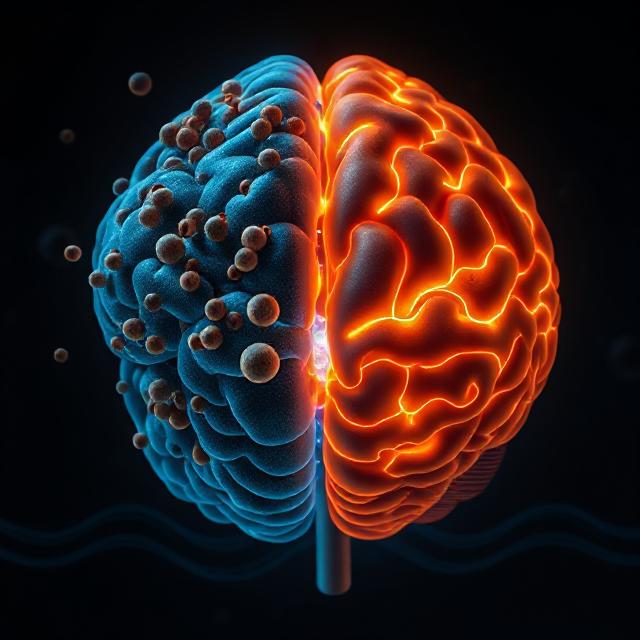Table of Contents
Circadian Fasting & Sleep Healing: Align Your Eating With Your Body Clock
In recent years, circadian fasting has emerged as a powerful strategy to improve metabolic health, sleep quality, and overall regeneration. Unlike traditional intermittent fasting protocols that focus solely on the timing and length of fasts, circadian fasting is rooted in syncing eating patterns with the body’s intrinsic biological clock — the circadian rhythm.
The circadian rhythm is a roughly 24-hour cycle that governs many physiological processes including hormone secretion, metabolism, and sleep-wake cycles. When your eating schedule aligns with this natural rhythm, it can significantly enhance sleep quality, promote cellular repair, and support long-term health.
This guide explores the science behind circadian fasting and its role in sleep healing and regeneration, breaking down how timing your meals according to your body clock can optimize your wellness journey.
Understanding Circadian Rhythms
At the core of circadian fasting is the circadian rhythm — an internal timekeeping system driven by the brain’s suprachiasmatic nucleus (SCN) located in the hypothalamus. The SCN uses environmental cues, especially light and darkness, to synchronize bodily functions with day and night.
Key functions regulated by the circadian rhythm include:
- Sleep-wake cycles: Dictating when you feel sleepy or alert.
- Hormone release: Such as melatonin for sleep initiation and cortisol for alertness.
- Metabolic processes: Including insulin sensitivity, digestion, and energy expenditure.
Disruptions to circadian rhythms, often caused by irregular sleep, artificial light exposure at night, or erratic eating schedules, are linked to poor metabolic health, sleep disorders, and increased disease risk.
What Is Circadian Fasting?
Circadian fasting involves timing your eating window to coincide with your body’s natural metabolic activity during daylight hours and fasting during the biological night when digestion and insulin sensitivity are lower.
Typically, this means:
- Eating earlier in the day: Starting with breakfast soon after waking and finishing the last meal in the early evening.
- Avoiding late-night eating: When the body is primed for rest and repair, not digestion.
This eating pattern contrasts with late-night snacking or irregular meal timing that conflicts with the circadian rhythm, potentially disrupting sleep and metabolic health.
How Circadian Fasting Enhances Sleep
1. Improved Melatonin Production
Melatonin, often called the “sleep hormone,” rises naturally in the evening to prepare the body for sleep. Eating late at night, especially heavy or carbohydrate-rich meals, can blunt melatonin release and delay sleep onset.
By restricting food intake to daylight hours, circadian fasting supports the natural melatonin surge, helping you fall asleep more easily and achieve deeper sleep stages essential for healing.
2. Reduced Cortisol and Stress
Cortisol, the body’s stress hormone, peaks in the early morning to promote wakefulness and metabolism. Eating in alignment with circadian rhythms helps normalize cortisol patterns. Erratic eating or late-night meals can elevate cortisol at night, making it harder to relax and fall asleep.
3. Enhanced Sleep Quality and Duration
Several studies link time-restricted eating aligned with the circadian rhythm to improved sleep quality, increased slow-wave sleep (deep sleep), and reduced awakenings. Better sleep allows more efficient brain detoxification and cellular repair.
The Role of Circadian Fasting in Healing and Regeneration
Sleep is the body’s primary regenerative state, and fasting amplifies this process by activating cellular pathways that clear damaged components and rebuild tissue.
Autophagy Activation
Fasting triggers autophagy — a natural, cellular “cleanup” process that removes damaged proteins and organelles. When fasting coincides with your biological night, autophagy is maximized during sleep, enhancing tissue repair and immune function.
Hormone Optimization
Growth hormone, vital for muscle repair, fat metabolism, and cellular regeneration, is secreted mostly during deep sleep. Circadian fasting supports growth hormone release by improving sleep depth and reducing insulin spikes from late-night eating.
Reduced Inflammation
Chronic inflammation impairs healing and contributes to many diseases. Circadian fasting lowers inflammation markers by stabilizing blood sugar and improving gut health, both critical for restorative sleep and recovery.
Practical Guidelines for Implementing Circadian Fasting
1. Set a Consistent Eating Window
Aim to consume all meals within a 10- to 12-hour window aligned with daylight. For example:
- Eat breakfast between 7-9 AM.
- Finish dinner by 6-7 PM.
This respects your body’s natural metabolic peak and avoids nighttime digestion.
2. Avoid Late-Night Eating
Refrain from snacks or meals after your set eating window closes. Late-night eating disrupts circadian rhythms and impairs sleep quality.
3. Optimize Light Exposure
Maximize natural light exposure during the day to reinforce your circadian rhythm. In the evening, reduce artificial blue light from screens to encourage melatonin production.
4. Prioritize Sleep Hygiene
Complement circadian fasting with good sleep habits:
- Maintain a consistent bedtime.
- Create a dark, quiet sleeping environment.
- Avoid caffeine and heavy meals close to bedtime.
5. Adjust for Individual Lifestyle
If shift work or social obligations affect your schedule, try to maintain consistent meal timing relative to your waking hours and minimize night eating as much as possible.
Scientific Evidence Supporting Circadian Fasting & Sleep Healing
- Animal studies show that aligning feeding times with circadian cycles prevents metabolic disorders and improves lifespan.
- Human trials of time-restricted feeding demonstrate improved insulin sensitivity, blood pressure, and sleep quality when eating earlier in the day.
- Research in shift workers highlights how circadian misalignment causes sleep disturbances and metabolic problems, which circadian fasting may help mitigate.
Potential Challenges and Considerations
- Initial hunger or fatigue during adaptation — easing in gradually helps.
- Social meals outside the fasting window — plan ahead or allow occasional flexibility.
- People with medical conditions (diabetes, pregnancy) should consult healthcare providers before fasting.
Conclusion
Circadian fasting is a scientifically grounded approach to optimize your health by harmonizing eating patterns with your body’s natural clock. By limiting food intake to daytime hours, you support melatonin production, improve sleep quality, and enhance regenerative processes like autophagy and hormone release.
When combined with good sleep hygiene and light management, circadian fasting helps unlock your body’s innate healing potential, promoting vitality, longevity, and well-being.




